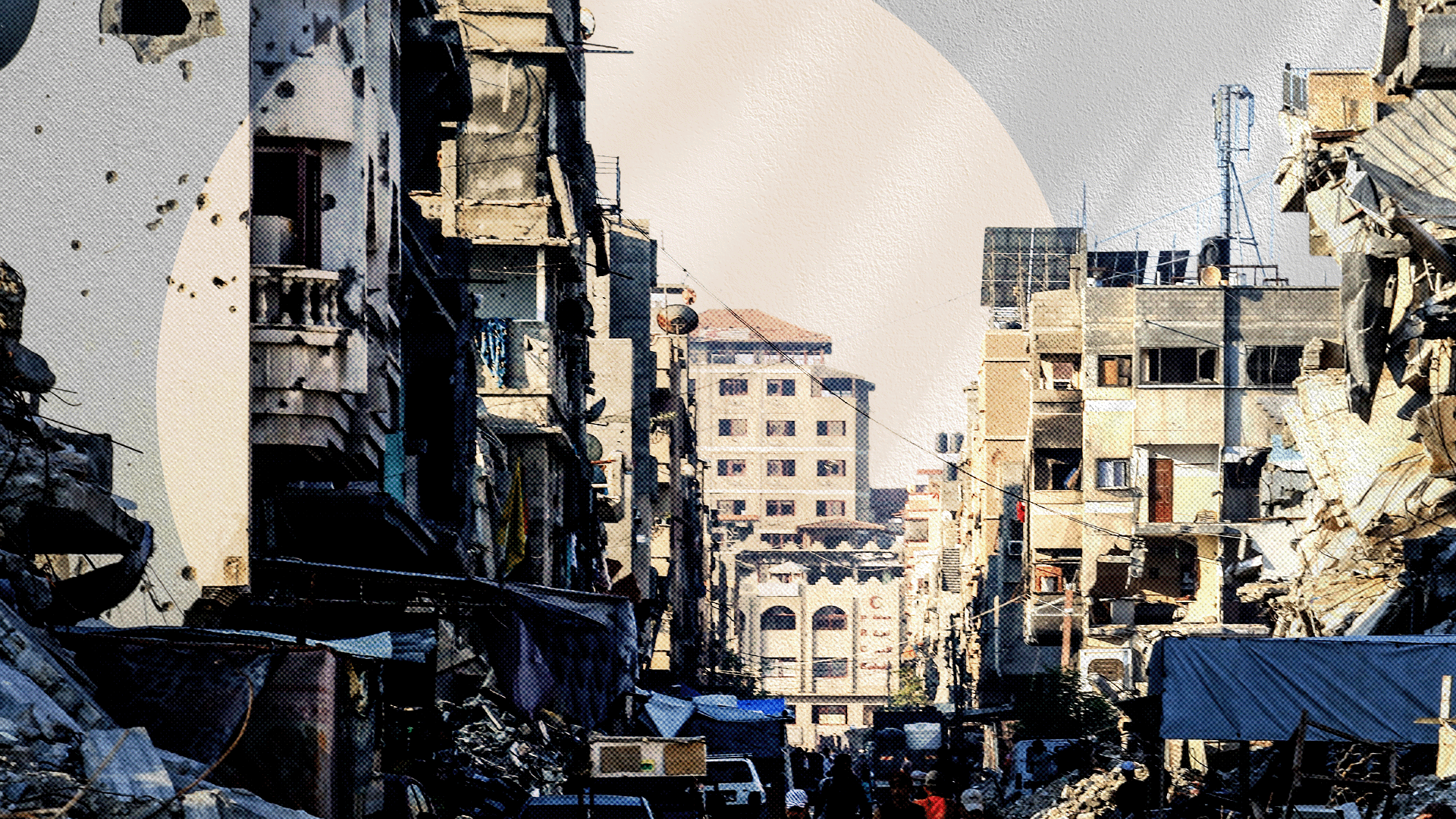Tank seen on key Gaza road as Israeli forces push deeper into north
- Published
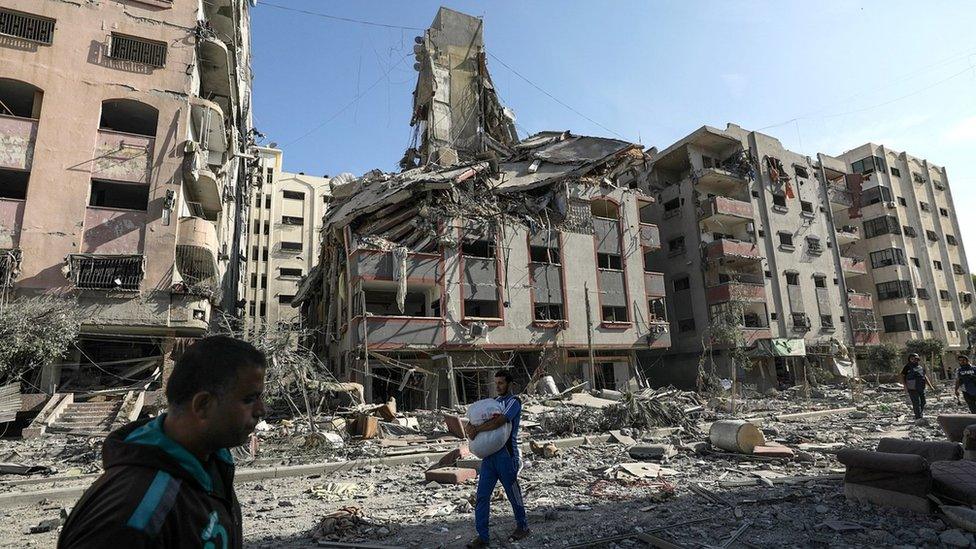
Gaza City's southern Tal al-Hawa district has come under intense Israeli bombardment in recent days
Israeli forces have pushed deeper into the northern Gaza Strip, with tanks briefly cutting an evacuation route to the south, Palestinian witnesses say.
One tank was filmed on Salah al-Din Road, sparking speculation it could be part of an advance on Gaza City.
A video showed a car turning around after approaching the tank, which seems to open fire and destroy it.
Later, Israel's military said a soldier being held hostage by Hamas was rescued in an overnight ground operation.
Prime Minister Benjamin Netanyahu hailed the freeing of Pte Ori Megidish, who was said to be "doing well", as an "exciting achievement" that expressed Israel's commitment to release the more than 230 other hostages.
He also condemned as "cruel psychological propaganda" a video released by Hamas that showed another three Israeli women in captivity in Gaza demanding he agree to a prisoner exchange.
The hostages - who include dozens of children and elderly people, as well as soldiers - were taken by Hamas gunmen during an unprecedented attack on southern Israel on 7 October in which 1,400 people were killed.

More on Israel-Gaza war
Follow live: Latest updates
Reporting on Gaza: 'Sometimes from behind the camera I just stand and cry'
Explained: What is happening in Israel and Gaza, and why now?
History behind the story: The Israel-Palestinian conflict

Over the weekend, Israel began what Mr Netanyahu called the "second stage" of a war intended to destroy Hamas, with ground forces expanding their operations inside Gaza after three weeks of intense bombardment.
Gaza's Hamas-run health ministry says more than 8,300 people have been killed in the territory since then, while supplies of food, water, fuel and medicines for its 2.2 million residents are dangerously low.
Mr Netanyahu has also rejected calls for a ceasefire in Gaza, saying that to pause military operations would be "to surrender to Hamas, to surrender to terrorism, to surrender to barbarism".
"Today we draw a line between the forces of civilisation and the forces of barbarism," he told a news conference on Monday. "Israel will stand against the forces of barbarism until victory. I hope and pray that civilised nations everywhere will back this fight."
Aid agencies have constantly called for a pause in the fighting in order to send aid to the besieged territory.
Watch: Moment tank fires near car on key north-south Gaza road
The video showing the tank on Salah al-Din Road was posted by photojournalist Yousef Basam, who drove northwards in a car on Monday morning.
Basam's car is seen coming to a stop just after an intersection known as Netzarim Junction, which is 2.8km (1.75 miles) from the perimeter fence with Israel and about 3km south of Gaza City.
He then zooms in on a second vehicle that is slowing down in front of what looks like piles of earth in the middle of the road and a stationary tank.
The tank starts to move while the second vehicle carries out a three-point turn. A flash is then seen coming from the direction of the tank just before the car is hit by an explosion.
"He's gone, the whole family is gone," shouts one of the men inside Basam's car, as it speeds away and returns southwards.
A photographer who was in the area following an air strike told the BBC: "Suddenly I looked back and I saw Israeli tanks." He took a couple of pictures and then fled.
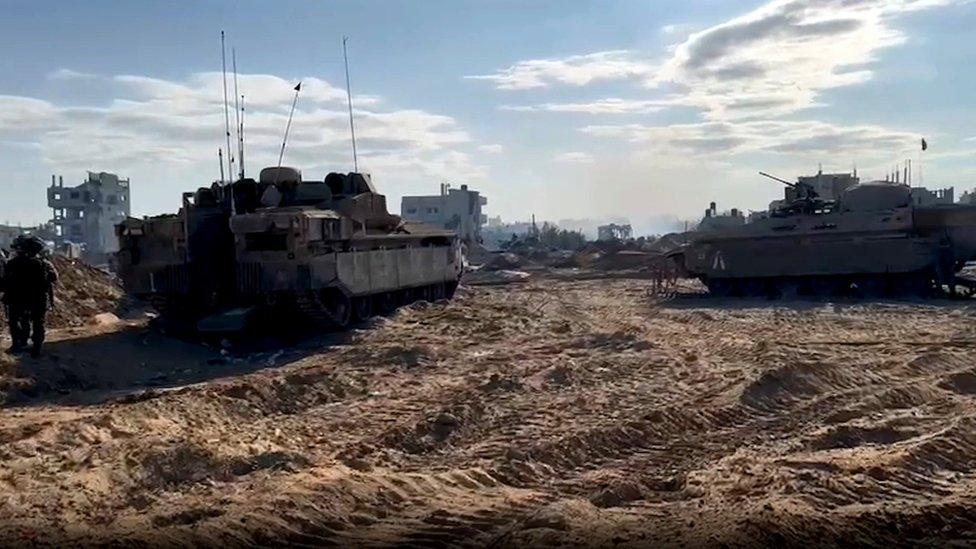
The Israeli military released video footage on Monday that it said showed troops operating within the Gaza Strip
The Israeli military's chief spokesperson was asked specifically about the tanks at a briefing and declined to give more information.
"We have expanded our operations, involving armour, infantry, and offensive actions within the Gaza Strip. This is done to achieve the two primary objectives of the war, which are countering Hamas and securing the return of the kidnapped individuals," Rear Adm Daniel Hagari said.
"While I cannot provide specific details here, I can assure you that the security of our forces remains our top priority."
Earlier, the Israeli military said tanks and troops had continued to expand their ground operations inside Gaza overnight, killing dozens of Hamas fighters barricaded in buildings and tunnels.
Air and artillery strikes had hit another 600 "terror targets" over the previous 24 hours, including weapons depots, anti-tank missile launching positions and hideouts, it added.
The BBC's Rushdi Abu Alouf, who is in the southern city of Khan Younis, said the incident on Salah al-Din Road was significant because Gaza was effectively cut in two for a period.
He also said there had been fewer air strikes in the south in the past day, with Israeli forces appearing to be focusing on the advance into northern areas.
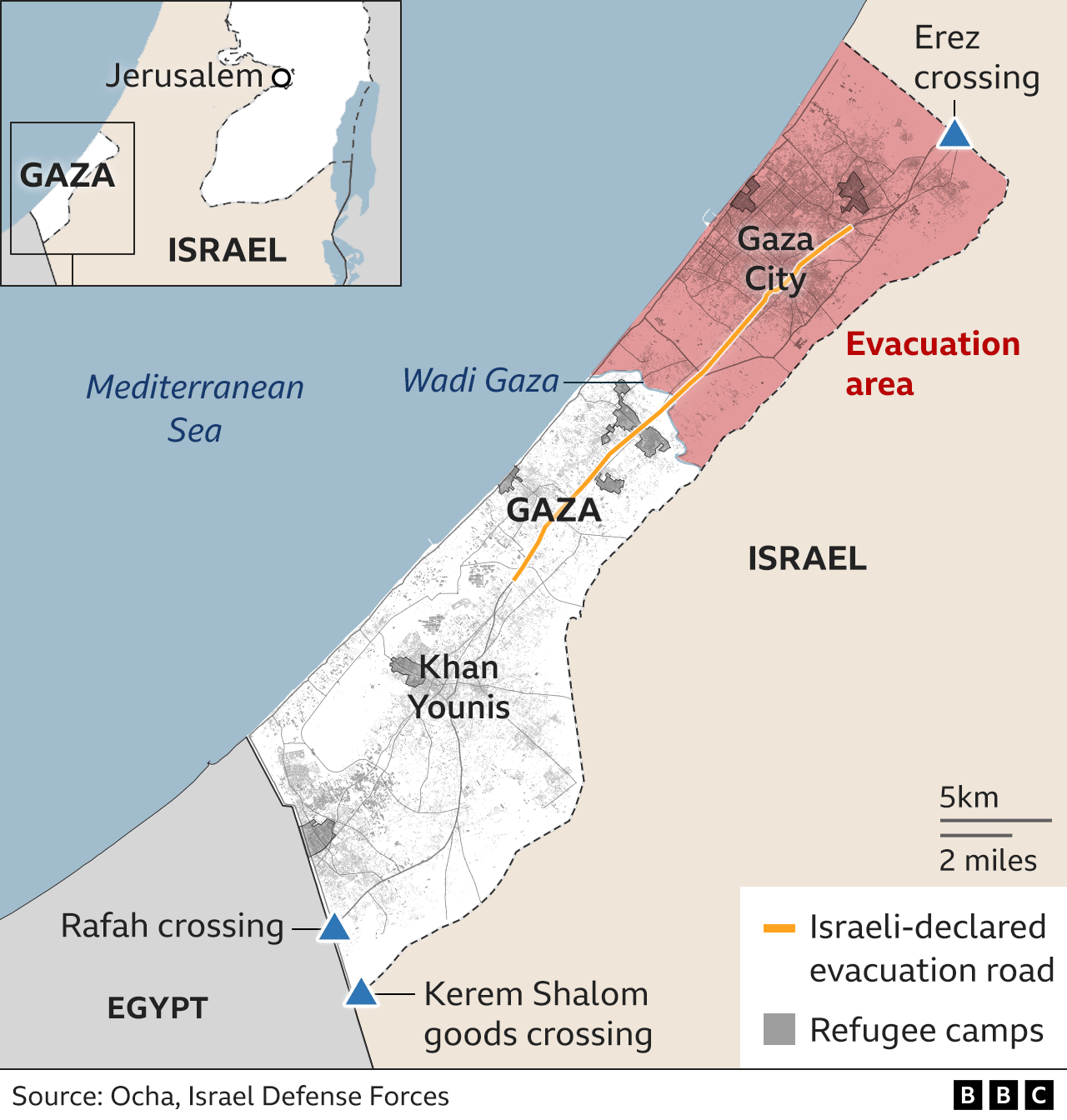
About 600,000 people are still believed to in the north despite the Israeli military ordering them to evacuate and head south of the Wadi Gaza river for their own safety.
The UN has said 10 hospitals in northern Gaza have received evacuation orders despite sheltering thousands of patients and 117,000 displaced people. It has warned that the evacuation of hospitals is impossible without endangering patients' lives.
About 400 patients and 14,000 displaced people are believed to be inside Al-Quds Hospital, in Gaza City's southern Tal al-Hawa district, where witnesses say the Israeli bombardment in recent days has been intense.
Fresh strikes were reported near Al-Quds Hospital in Gaza City on Monday, where staff have said it is impossible to carry out an Israeli order to evacuate thousands of displaced civilians sheltering there as well as hundreds of patients, some of them on life support.
The Palestinian Red Crescent posted a video that it said showed further air strikes near the hospital on Monday morning, external.
The director of the Turkish-Palestinian Friendship Hospital, which is south of Gaza City, also said it had been damaged by an Israeli strike in the vicinity on Sunday night, external.
Watch: People can be seen covering their mouths and noses inside what is said to be the Al-Quds hospital
There is similarly concern for patients and staff at Gaza City's biggest hospital - Al Shifa - where the situation has been described as "catastrophic" by its chief of surgery.
Dr Marwan Abusada said in a voice note to the BBC on Sunday afternoon that 55,000 displaced people were "occupying each square metre" of Al-Shifa and that it was "overwhelmed" by patients.
About 100 patients were moved to other hospitals over the weekend, he said. "But still we are receiving many, many, many cases. Each half an hour, we receive a huge number of injured people."
The Israeli military has accused Hamas of deliberately basing itself near, or even within, public buildings like hospitals. Hamas has rejected that allegation.
The director of the UN agency for Palestinian refugees (Unrwa) in Gaza, Thomas White, told the BBC that civilians sheltering inside hospitals and UN facilities like schools must be protected by all parties under international law.
"The reality is that many people in the north can't move because they physically do not have the transportation, they don't have the means," he said.
He also warned that the looting of flour, hygiene supplies and other items from Unrwa warehouses in central and southern Gaza on Sunday was an indication not only of people's desperation at going without food and safe drinking water, but also of how "the social fabric of Gaza is starting to break".
Mr White also said the arrival of another 33 aid lorries from Egypt on Sunday, carrying food, water and medical supplies, was "not going to meet the requirements of Gaza".
"We need hundreds of trucks moving into Gaza every day," he added. "But what we are very concerned about now is that the public sector and the private sector will collapse."
Related topics
- Published30 October 2023

- Published7 November 2023
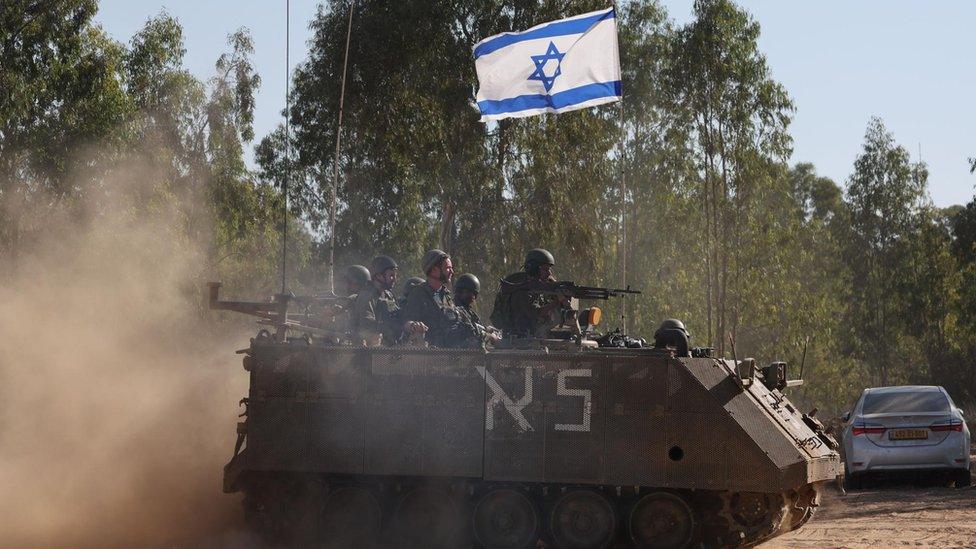
- Published27 February
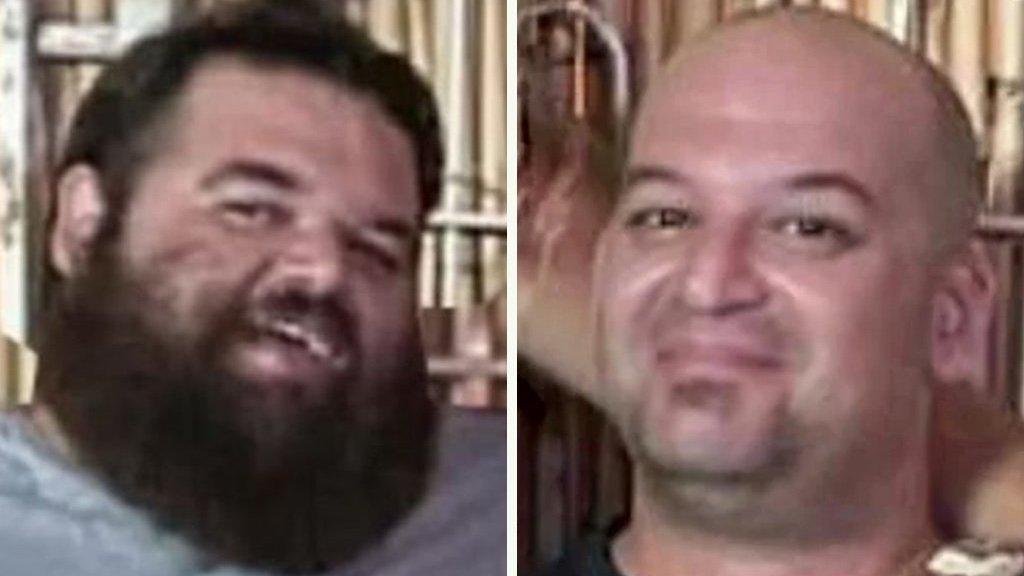
- Published29 October 2023
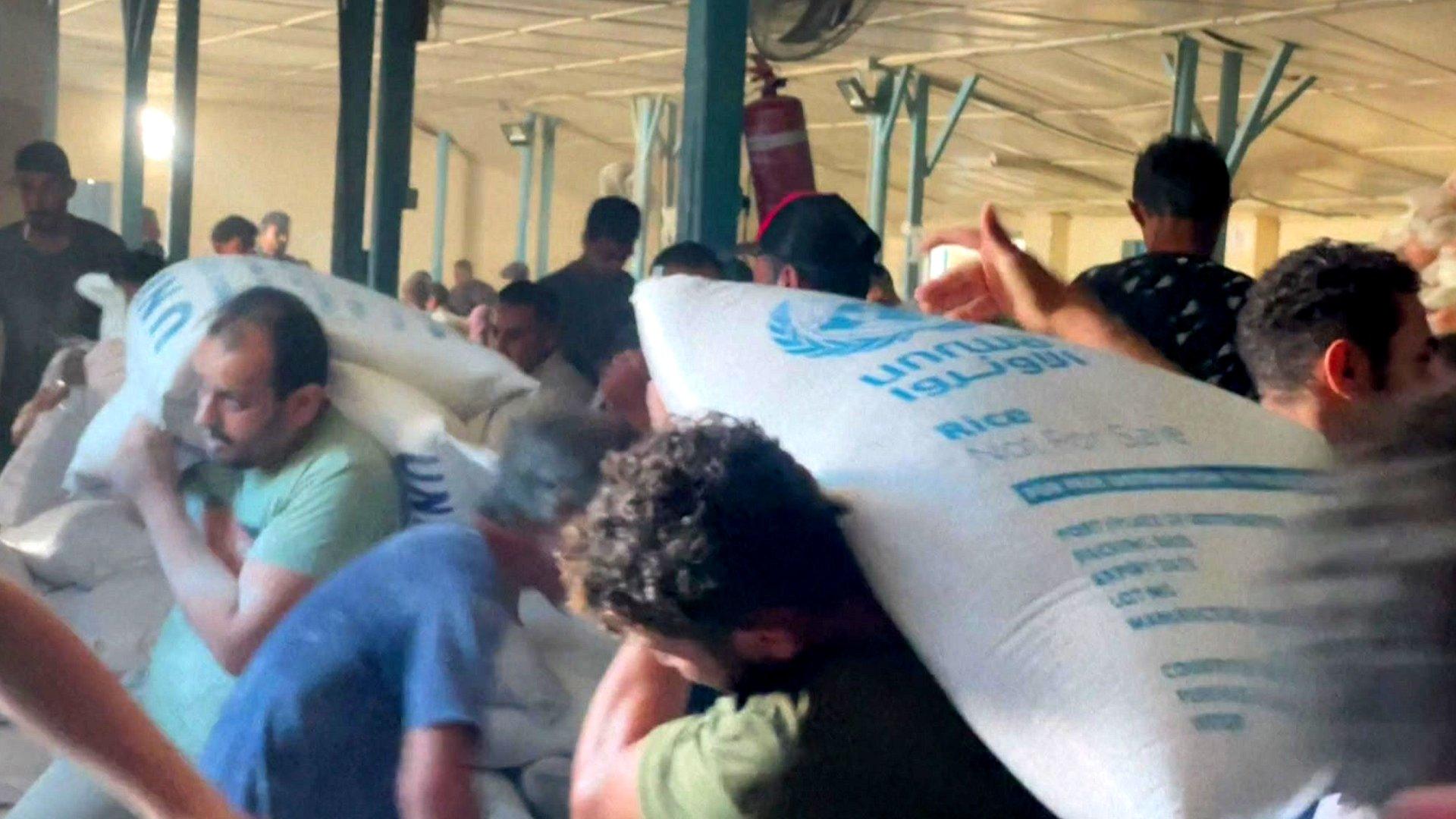
- Published29 October 2023
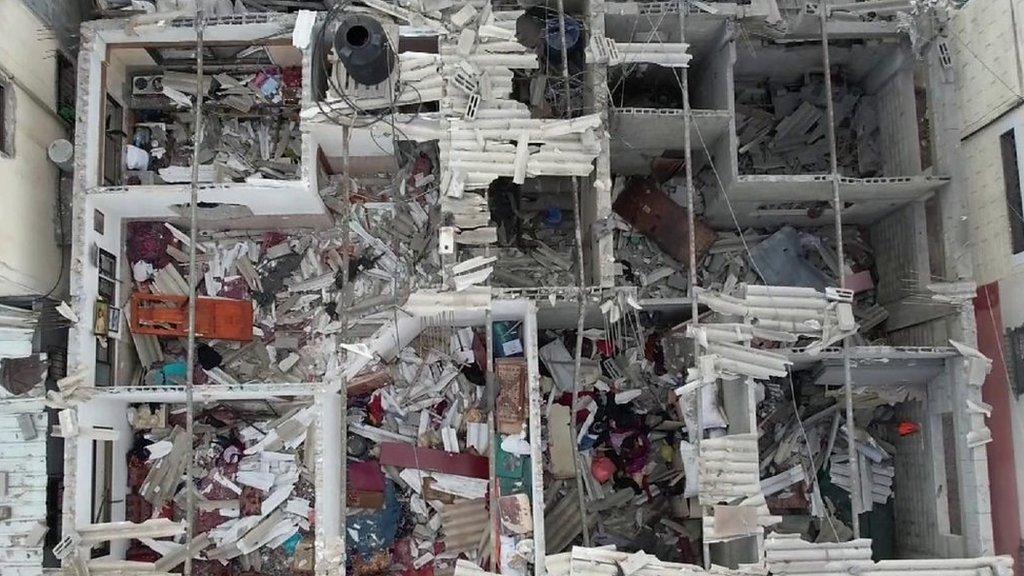
- Published16 January
